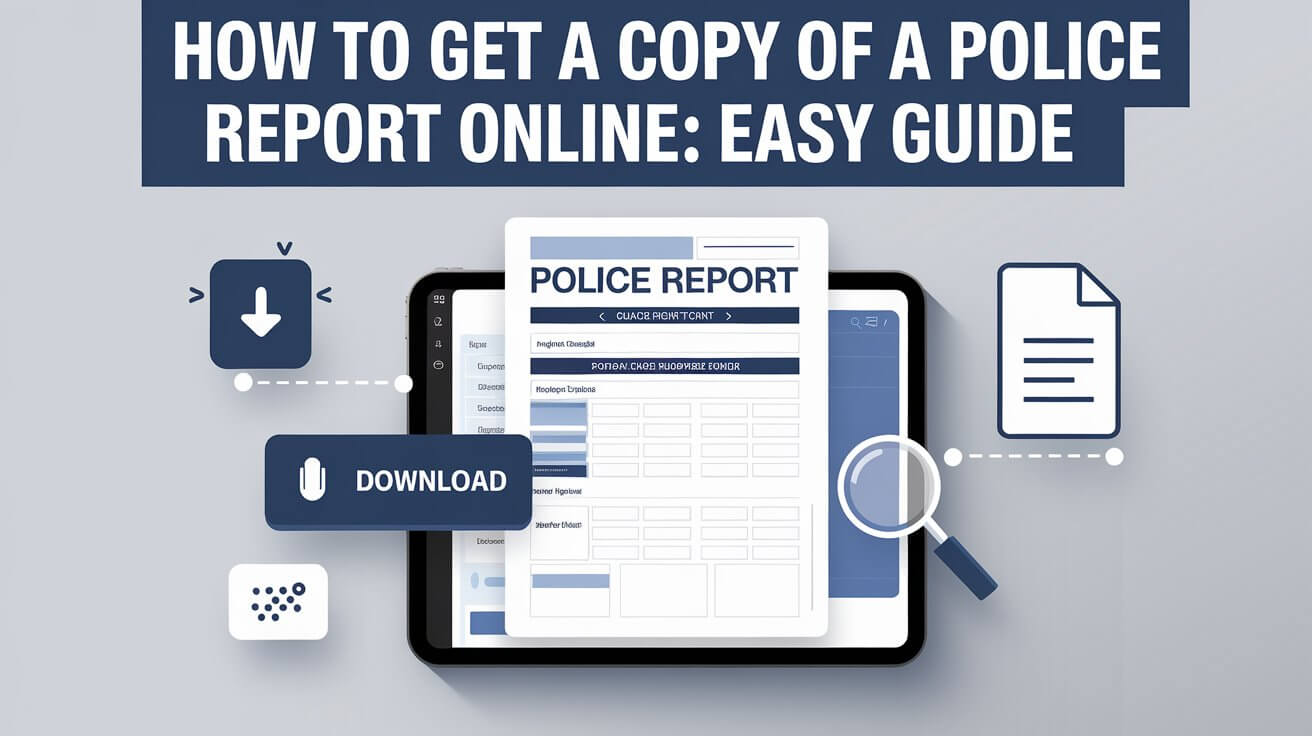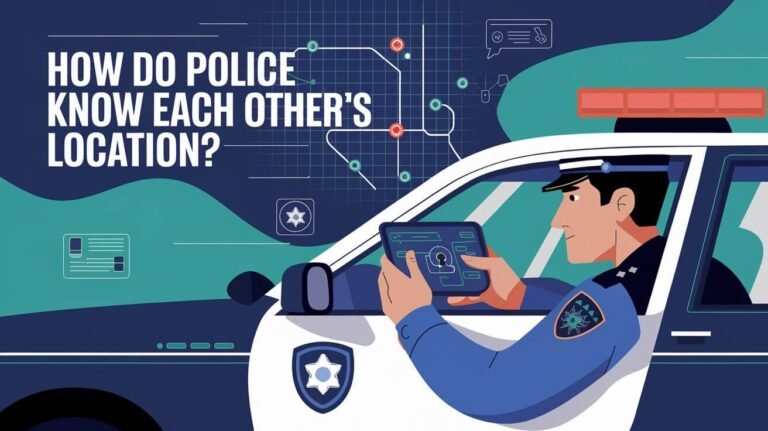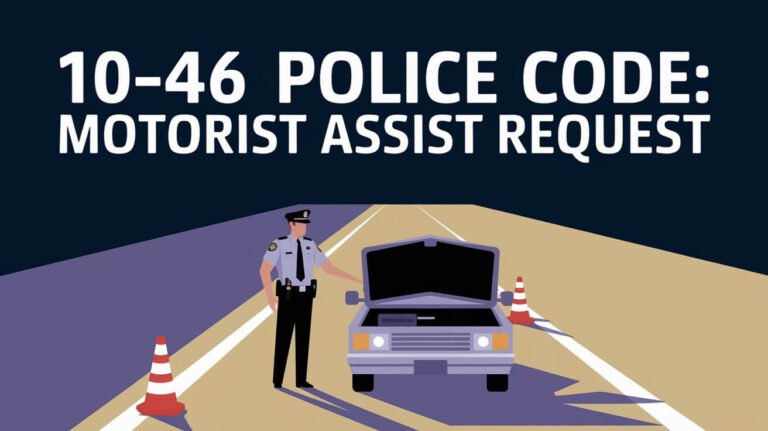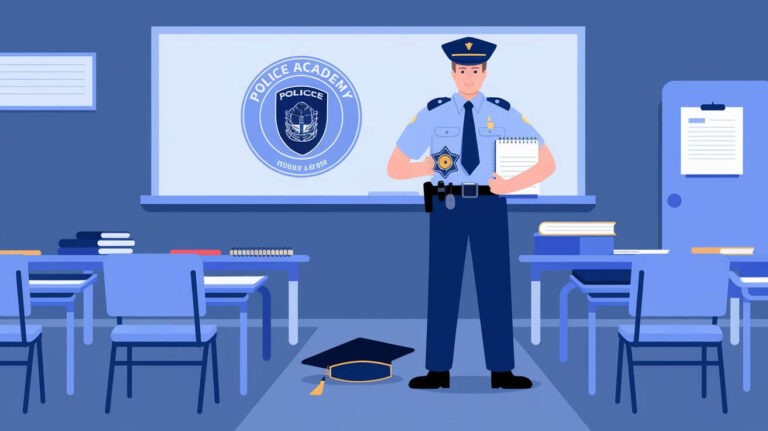How to Get a Copy of a Police Report Online: Easy Guide

You can get a copy of a police report online by visiting your local law enforcement agency’s website, locating their records section, and submitting a request through their online portal. This guide covers the entire process, from gathering necessary information to handling potential roadblocks.
Police reports serve as official records of incidents, accidents, or crimes. They’re crucial for various purposes, including insurance claims, legal proceedings, and personal records. While the traditional method of obtaining these reports involved visiting the police station in person, many departments now offer convenient online options.
Why You Might Need a Police Report
Police reports play a vital role in many situations. Here are some common reasons why you might need to get your hands on one:
Common Reasons for Requesting Police Reports
- Insurance claims: After a car accident or property damage, your insurance company often requires a police report to process your claim.
- Legal matters: Attorneys frequently use police reports as evidence in court cases.
- Employment background checks: Some jobs may require you to provide police reports as part of their screening process.
- Personal records: You might want a copy for your own documentation of an incident.
Benefits of Obtaining a Police Report
Having a police report can:
- Provide an official account of an incident
- Help speed up insurance claim processes
- Serve as evidence in legal proceedings
- Offer peace of mind by having a record of events
Before You Start: Essential Information to Gather
Before diving into the online request process, gather these key details to make your search smoother:
Details About the Incident
- Date, time, and location of the incident
- Type of incident (accident, theft, etc.)
- Names of people involved
- Report number (if provided by the responding officer)
Personal Information Required
- Your full name
- Contact information (phone number, email address)
- Relationship to the incident (victim, involved party, etc.)
- Identification (driver’s license number or other government ID)
Having this information ready will streamline the process and increase your chances of a successful request.
Step-by-Step Process to Get a Police Report Online
Follow these steps to obtain your police report through online channels:
Locate the Correct Law Enforcement Agency
First, identify which agency handled your incident. Was it the local police department, county sheriff’s office, or state patrol? Each agency typically has its own process for report requests.
Pro tip: If you’re unsure, start with the local police department’s website. They often provide guidance on which agency to contact for specific types of reports.
Navigate to the Online Portal
Once you’ve found the right agency’s website:
- Look for a section labeled “Records” or “Police Reports”
- Search for terms like “Request a Report” or “Online Services”
- Some departments use third-party services like CrashDocs.org for accident reports
Fill Out the Request Form
Online forms vary by department but generally ask for:
- Your personal information
- Incident details
- Reason for the request
Be as accurate and thorough as possible to avoid delays.
Pay Any Required Fees
Many agencies charge a fee for report copies. Fees typically range from $5 to $25, depending on the report type and your location. Common payment methods include:
- Credit/debit cards
- Electronic checks
- PayPal (in some jurisdictions)
Submit Your Request and Track Progress
After submitting your form and payment:
- You’ll usually receive a confirmation email with a reference number
- Use this number to check the status of your request
- Some portals allow you to create an account for easier tracking
Note: Processing times vary widely, from a few days to several weeks, depending on the agency and report complexity.
Alternative Methods to Obtain Police Reports
While online requests are often the most convenient, other options exist:
In-Person Requests
Visiting the police station in person can be helpful if:
- You need the report urgently
- You have questions about the process
- The incident occurred recently and may not be in the online system yet
Mail-In Requests
Some agencies accept mailed requests. This method typically involves:
- Downloading and printing a request form from the agency’s website
- Mailing the completed form with a check or money order for the fee
Phone Requests
A few departments allow requests by phone, but this is becoming less common. If available, be prepared to provide all necessary information over the call.
Timeframes for Receiving Your Police Report
Patience is key when waiting for your police report. Here’s what to expect:
Typical Processing Times
- Online requests: 3-10 business days
- In-person requests: Same day to 3 business days
- Mail-in requests: 2-4 weeks
Factors That May Affect Wait Times
- Complexity of the incident
- Ongoing investigations
- Volume of requests the agency is handling
- Staffing levels in the records department
If you haven’t received your report within the expected timeframe, don’t hesitate to follow up with the agency.
Handling Denied Requests
Sometimes, your request for a police report might be denied. Don’t panic – there are often good reasons and potential solutions.
Common Reasons for Denial
- Ongoing investigation: Reports related to active cases may be temporarily unavailable.
- Privacy concerns: Reports involving minors or sensitive information might be restricted.
- Incorrect jurisdiction: You may have requested from the wrong agency.
- Incomplete information: Your request might lack necessary details.
Steps to Appeal a Denied Request
If your request is denied:
- Ask for a written explanation of the denial
- Review the agency’s appeal process (usually found on their website)
- Submit an appeal with any additional information or clarification
- Consider consulting a lawyer if the report is crucial for legal matters
Privacy and Legal Considerations
Understanding who can access police reports and what information they contain is crucial.
Who Can Access Police Reports
Generally, these parties can obtain police reports:
- Involved parties (victims, witnesses, suspects)
- Insurance companies (with permission from involved parties)
- Attorneys representing involved parties
- Members of the media (in some cases)
Redacted Information in Reports
To protect privacy, certain information is often removed from reports before release:
- Social Security numbers
- Driver’s license numbers
- Witness contact information
- Juvenile names
- Details about ongoing investigations
Tips for a Smooth Online Police Report Request
Make your request process as efficient as possible with these tips:
Double-Check Your Information
Before submitting:
- Verify all dates, names, and locations
- Ensure you’ve selected the correct type of report
- Double-check your contact information
Follow Up on Your Request
If you haven’t heard back:
- Use the provided reference number to check status online
- Contact the records department directly after the expected processing time
- Be polite and patient – records staff often handle high volumes of requests
Frequently Asked Questions About Online Police Reports
Let’s address some common queries about obtaining police reports online:
Cost of Obtaining Reports
Fees vary widely:
- Many departments charge $10-$25 per report
- Some offer the first copy free to involved parties
- Fees may be higher for extensive reports or those requiring significant redaction
Types of Reports Available Online
Most agencies offer these reports online:
- Traffic accident reports
- Theft reports
- Burglary reports
- Vandalism reports
However, reports involving ongoing investigations or sensitive crimes may not be available online.
Differences Between States and Jurisdictions
Each state and local jurisdiction has its own laws and procedures for police reports. Key differences include:
- Waiting periods before reports become available
- Types of reports accessible to the public
- Fees and payment methods
- Online availability (some smaller departments may not offer online services)
Always check with the specific agency handling your report for the most accurate information.
Conclusion
Getting police reports online is now easier. Follow these steps to get your report:
- Have all needed info ready
- Fill out the online form carefully
- Double-check everything before sending
- Be patient while waiting for your report
- Follow up if you have any problems
Online requests are a quick way to get reports for insurance, legal, or personal needs. With these tips, you can get your police report without much trouble.






